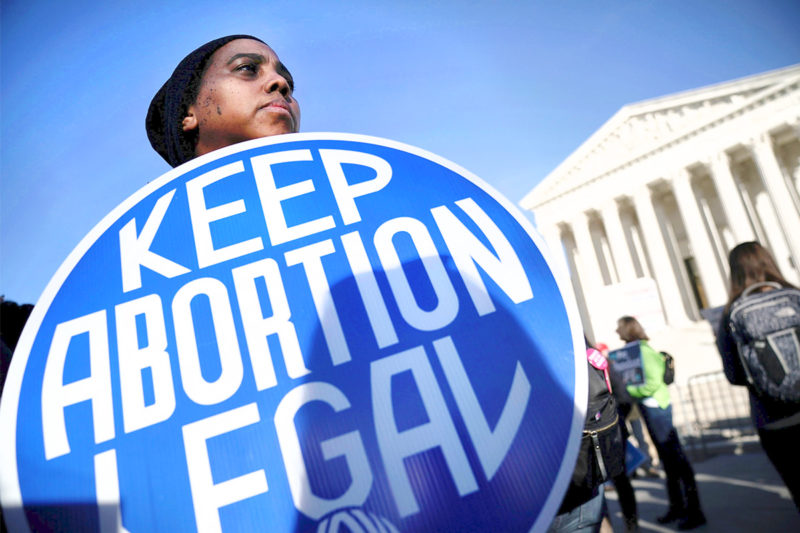I’m an Abortion Provider. This is What New York’s Reproductive Health Act Means to Me.
It is monumental that we have removed antiquated laws that criminalize the provision of routine medical care.

On Tuesday, the 46th anniversary of landmark court decision Roe v. Wade, which legalized abortion in the United States, New York state lawmakers passed their own historic legislation—the Reproductive Health Act (RHA). The RHA enshrines the protections of Roe into state law, removes abortion from the criminal code, and clarifies that trained health-care providers acting within their scope of practice can provide abortion care.
As an abortion provider at Planned Parenthood of New York City, I’m thrilled to see our legislators recognize how critical abortion access is to the health and well-being of our communities, especially with mounting attacks on our care from Washington.
The vast majority of abortions in the United States take place early in pregnancy. According to the Guttmacher Institute, only slightly more than 1 percent of abortions are performed at 21 weeks or later. Often (but not always), patients at this stage choose abortion after a doctor has detected a life-threatening fetal abnormality.
Previously, under New York’s outdated abortion law, those seeking abortion care later in pregnancy had to travel out of state to receive the procedure. This is often a logistical nightmare that includes the stress of finding a provider out of state, raising funds for the procedure itself and the associated travel, and dealing with insurance coverage. These issues are particularly difficult, and often insurmountable, for those with low incomes.
The decision to end a pregnancy is deeply personal. It is often tied to complex variables in a person’s life related to their socioeconomic status, whether or not they already are a parent, if they’re in a stable relationship, or have achieved certain personal goals in life yet, like education or career success. Terminating a later pregnancy can also have an added layer of emotional and personal complexity when the pregnancy was very much wanted.
Take, for example, the case of reproductive health activist Erika Christensen, who, at 31-weeks pregnant, carrying a pregnancy she and her husband desperately wanted, learned that her baby would be unable to survive outside the womb. Due to New York’s abortion law at the time, which housed the procedure in the criminal code, Christensen had to travel to Colorado. The procedure alone cost her $10,000. This is an unthinkable amount for most, even for a necessary medical procedure.
It’s unacceptable that up until now, some people in New York seeking abortion care later in pregnancy had to go through what Christensen went through. What’s also unacceptable is that so many have been unable to access the abortion care they needed at all due to New York’s laws.
As a medical provider, I firmly believe that sexual and reproductive health decisions should be made by no one but a patient and their doctor, certainly not politicians. What can already be a complicated experience for many is made that much more difficult by a culture that shames people for making their own decisions about their bodies, and a government that seeks to control our reproductive futures.
With passage of the Reproductive Health Act, New York can finally grow to be a model of what sexual and reproductive health care should be. This legislation is a resounding endorsement of an individual’s autonomy to determine if and when to parent. It is also monumental that we have removed antiquated laws that criminalize the provision of routine medical care.
I’m grateful about how this positions providers like myself to be able to continue offering high-quality, evidence-based care while minimizing the impact of the potential overturning of Roe v. Wade. This legislation now enables us to function as a potential sanctuary for those who need this care should the landscape become even more restrictive. Moving forward, to make good on the promise of expanded access that the RHA provides, we must tackle issues of affordability, insurance coverage, and comprehensive provider training when it comes to abortion.
Our patients do not come to us with a political agenda. They just want support, resources, and medical care. Thanks to the progressive leaders in office, New York providers are one step closer to creating the community we all deserve—one where every person is able to make the best sexual and reproductive health decisions for themselves and their families.
